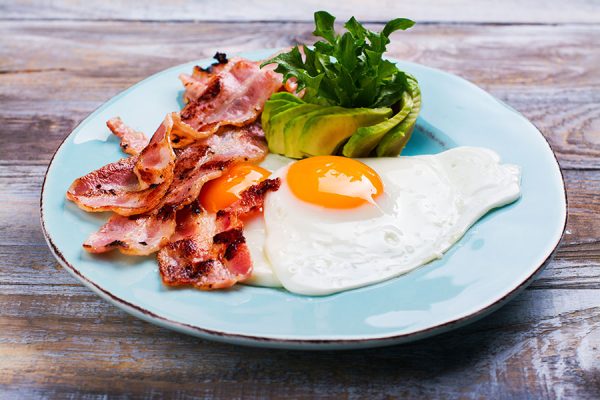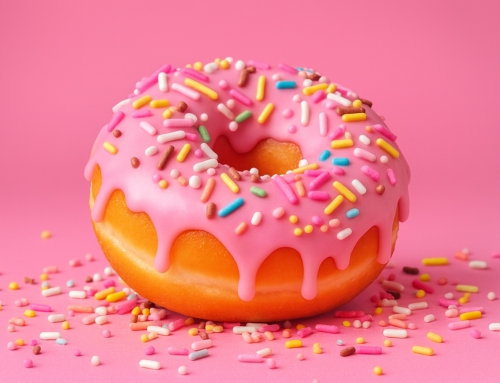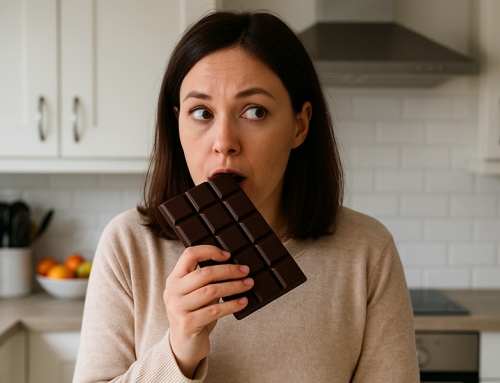A Burn the Fat Blog Archives Classic. Originally published March 11th, 2004.
I tried the high fat low carb keto diet in various forms in earnest on three separate occasions. It worked enough for one successful contest prep, but it simply wasn’t for me. I went back to standard bodybuilding nutrition with balanced macros. In the old days, low fat high carb was best known under the Atktin’s diet brand. The popularity of Atkin’s faded a bit, but then in the early 2000’s it was back in full force under the name, “keto diet” (short for ketogenic), and that’s what prompted the original version of my article. This article got quite a few chuckles (and other reactions) from a lot of readers because I wrote it partly in a cheeky style. But this is serious subject matter because there is a smart way to approach low carb and a dumb way. Do it the dumb way, and you could have problems…

Now here we are decades later, and keto low carb diets are still trending. It’s not even just trending, the low carb keto diet is here to stay. But many people who are new in the diet market are acting like it’s a breakthrough. News flash: the low carb, high fat diet is not new. It’s old. Not just two decades old, it was around before I was born. In fact, the first low carb diet book was published in the late 1800s.
And despite all the new science available today that gives us a better understanding of how low carb, high protein or low carb, high fat diets really work, a lot of people are still thinking about it wrong and doing it wrong. Marketeers are taking it to the bank… many consumers on the other hand, are being taken. And that’s why I’m revisiting and re-sharing this article, 20 years later…
Low Carb Intelligence vs Low Carb Stupidity… Originally published March, 2004
Remember that movie with Jim Carey, “Dumb and Dumber?” And remember the sequel to that movie, “Dumb and Dumberer?” Well, the low carb mania that is sweeping the globe today has reached a level beyond dumberer… It’s more like dumberererer (try to say that five times real fast)
There is an epidemic of “low carb stupidity” running rampant among millions of people throughout the world today – and fast food restaurants, food product manufacturers, supplement companies, and weight loss programs are capitalizing on it in a big way!
The low carb diet is not inherently stupid, however. It can be quite beneficial within certain parameters and under the right circumstances. The problem is that many practitioners are uninformed, misinformed, or simply lack the common sense and intuitive bodily wisdom to utilize the low carb approach intelligently.
Many low-carbers don’t even know why they are on a low carb diet, they’re just following the followers. That is not intelligent. Doing what everyone else is doing is always one of the surest, straightest routes to arrive at mediocrity! If you want to be a success, your chances are far greater if you look at what the masses are doing and do the exact opposite!
Fortunately, there is such a thing as “low carb intelligence.” Hopefully, by reading my brief rant today, you will increase your carb IQ, and soon join the ranks of the extraordinarily fit, lean and healthy “carbo geniuses!”
Low carb stupidity #1:
Believing any of the following: Low carbs diets are the only way to lose fat, low carb diets are the best way to lose fat, no one should ever eat a high carb diet, high carbs always make you fat, starches and grains make everyone sick and unhealthy.
Low carb intelligence:
Adjusting your diet approach according to your health status, your goals, your preferences and what’s sustainable for you, not according to generalizations preached by dogmatic diet “gurus.”
Low carb stupidity #2:
Selecting your beer or liquor carefully to make sure you have the brand with the fewest grams of carbs.
Low carb intelligence:
Avoiding alcohol if you’re trying to lose body fat (especially if unsuccessfully so far). Drinking only in moderation if you’re trying to maintain your weight, be healthy and have a sensible balanced lifestyle.
Low carb stupidity #3
Going on a ketogenic diet or any other low carb, high fat diet with no real idea why you’re doing it or how the diet works (going on it because “everybody” is doing it and because you see it advertised and talked about everywhere.)
Low carb intelligence:
Studying the physiology and biochemistry of the low carb diet, reading both sides of the research objectively, and understanding all the pros and cons. Then making an informed decision whether to restrict carbs (and how much) based on your own personal goals, preferences, and heath status.
Low carb stupidity #4:
Thinking that extremely low carb dieting is a maintainable “lifestyle” for everyone.
Low carb intelligence:
Understanding that reasonable restriction of carbs can be a helpful strategy for fat loss, a good way to reach a peak, and a legitimate method to control hunger. But also understanding that a balanced macro diet of unprocessed foods is probably the most suitable of all the diets for most people for lifelong maintenance, health and happiness.
Low carb stupidity #5:
Believing calories don’t count if you just cut out your carbs (or not counting calories because it’s “too much work.”)
Low carb intelligence:
Knowing that fat loss always did and always will boil down to calories in vs. calories out and low carb is often no more than another way to control calories. Taking the time and effort to crunch your numbers (at least once), typing up your meal plan using an app, spreadsheet or nutrition software.
Low carb stupidity #6:
Staying on a low carb diet that has stopped working (or never worked in the first place).
Low carb intelligence:
Adjusting your diet composition and macros according to your results; understanding that a common definition of insanity (and/or stupidity) is to keep doing the same things over and over again, while expecting a different result.
Low carb stupidity #7:
Believing that you don’t need exercise because all you need to do is cut carbs.
Low carb intelligence:
Knowing that dieting (alone) is the worst way to lose fat and that exercise (including resistance training) is the best way to lose fat while also getting fit, strong and muscular (“Burn The Fat, don’t starve the fat”).
Low carb stupidity #8:
Using the argument, “There’s no such thing as an essential carbohydrate” as a justification for low carb dieting.
Low carb intelligence:
Realizing that textbook definitions of “essential” can be taken out of context to promote a fad diet and just because there’s technically no “essential” carbohydrates (as there are essential amino acids, fatty acids and micronutrients) doesn’t mean carbohydrates aren’t important in other respects.
Low carb stupidity #9:
Using the argument, “You have to eat fat to lose fat” as justification for a high fat, low carb diet, without explaining it or putting it in context (exactly how much fat and what kind of fat?)
Low carb intelligence:
Understanding the importance of essential fats (good fats), a balanced mix of fats and avoiding refined fats and oils, but not taking any single nutritional principle to an extreme (such as, “If a little fat is good for you then a lot is necessarily better.”)
Low carb stupidity #10:
Saying, “All carbs are bad” or “All carbs are fattening.”
Low carb intelligence:
Avoiding generalizations, and instead, having multiple distinctions about carbohydrates (and other foods) so you can make better choices.
For example:
Starchy vs. fibrous carbs
Processed vs. unprocessed carbs
Nutrient dense vs. nutrient sparse carbs
High calorie density vs. low calorie density carbs
Low carb stupidity #11:
Not clarifying your definition of what low carb means (how low?)
Low carb intelligence:
Realizing that there are “very low” carb diets, “low” carb diets, and “moderate” carb diets. (Some people consider 40% of calories from carbs a low carb diet, others consider 40% carbs quite high… it’s moderate carb to me). There are also low carb high fat diets and low carb high protein diets. You can’t lump them all together.
Low carb stupidity #12:
Believing that carrots are fattening because they’re high on the glycemic index and because a popular fad diet book says so.
Low carb intelligence:
Have we lost all vestiges of common sense? With an average carrot clocking in at 31 calories and 7.3 grams of carbs, do you really think that this orange-colored, nutrient-dense, low-calorie, all-natural, straight-out-of-the-ground root vegetable is going to make you fat? If so, you are in “carbohydrate kindergarten.”
Low carb stupidity… Lucky #13
Eating lots of processed and packaged low carb foods (including those protein “candy bars”)… and thinking you’re “eating healthy.”
Low carb intelligence:
Realizing that natural, unprocessed foods are one of the keys to healthy, lifelong weight control and that anything highly refined is not an ideal “health” food even if it fits into a particular diet’s macro guidelines.
–End of Stupidities–
Forgive me for the obvious bits of sarcasm, but sometimes I can’t help myself and I end up going into rant mode. Seriously though, low carb diets can be a viable option for achieving fat loss goals, if they are approached intelligently, but some of the nonsense still going around the low carb market is nothing short of comical.
To learn about a more balanced method of fat loss which is also personalized, healthy, natural, supplement-free, and maintainable for life CLICK HERE
Tom Venuto, Author of
Burn The Fat Guide To Flexible Meal Planning For Fat Loss






There are documented metabolic advantages to Ketosis for the treatment of various diseases such as epilepsy, cancer, heart disease, Type 2 diabetes, Autism ect…but weight loss is just a “side effect” of a Ketogenic Diet rather than a goal. Macros still count whether you’re Vegan, Vegetarian, Keto, 40/40/20, Zone, Atkins, Paleo, Primal….or a “BFFM Burner”
Joe, people do follow keto or other LCHF variants with health goals in mind, and it surprises many traditional (balanced) diet followers that there are in fact evidence-based benefits for some conditions. However, keto diets are promoted and promoted aggressively for weight loss ALL the time, and the industry takes advantage the weight loss angle and sells it whenever LCHF becomes trendy. Yes, indeed macros (which means calories) matter no matter which diet plan you prefer – glad to hear that said, but calories / energy balance denialism still runs rampant in LCHF communities. LCHF would get more respect and legitimacy if the low carb community would simply admit that insofar as the weight loss side of things goes, low carb diets are another way to control calories
Tom… indeed.,, most diet programs are marketed by Spin Selling tactics.. like the proponents of IF that show you the can eatca huge hunk of cake at midnight because it’s in a 4 hour feed window.
Most folks are looking for a quick fix…not to treat a disease. and if goals are met will likely go back to the their usual eating and blow up like a tick.
Keto is even MORE SENSITIVE to macros than any diet. Fat needs to be North of 70% and protein south of 25% . Many fail because they are either fat phobic or are eating too much lean protein or are consuming hidden carbs. Eat more than you burn you will fail. Eat too little then you will go into starvation mode. Same as any other diet .
Keto is extreme and most don’t track macros which is uber important .
What is prevalent here is the ( fill in the blank) diet communities( BFFM is an Exception) typically tell you that compliant calories DONT count which is a downright lie.
The low fat, Low carb,LCHF, Paleo and Vegan /Vegetarian communities are all guilty of this. An over abundance of any macronutriet will be stored as body fat.
Generally when you restrict or remove any macronutrient from the diet you will create a caloric deficit simply because it’s a pain in the Butt to eat! But you are still flying blind if you expect calories to not count .
Hi Tom
I appreciate the article on keto dieting. I have been keto for 18 months and have had great success, but I realize it is not for everyone. I am interested in you clarifying that fat loss is based on calories in vs calories out. Is it safe then to say that if you eat a calorie of protein, then you need to burn one calorie to stay the same weight? But I have seen you post that one can subtract 30% of proteins calories because of the work required to break it down in the body. Isn’t that the same as saying the body treats each macronutrient differently? For instance if I eat pure sucrose, insulin will go up, and that sends a strong “store” message to our liver and fat cells, whereas if I eat pure fat, essentially no insulin is released, so the “store” message is not there? Might it be true that if eating pure sucrose that one would have to multiply by a number greater than 1 to determine real caloric load? Sort of the opposite of the protein example?
John, protein indeed has a high thermic effect. The irony is that keto LCHF diets are not high in protein, they are high in fat and fat does not have a high thermic effect. One would have to eat a very high protein diet to get a significant metabolic advantage from protein and its related to the thermic effect of food – nothing to do with insulin. Protein is the most satiating and appetite suppressive of the macros, so in certain types of low carb diets, the advantage can indeed be credited to the protein, but keep in mind, if appetite is suppressed, that means youre eating less and there we have come full circle back to calories and energy balance. Keto does appear to have a hunger suppressing advantage of its own so it would work the same way – no metabolic advantage of less carbs per se, but potential advantage for weight loss if it makes you eat less. When i do restricted carb diets, I prefer the higher protein approach not the LCHF approach, but everyone has to figure out what works best for them. The problem which is what prompted this post (including the humor/sarcasm), is really not any gripe i have with keto or Low carb at all – its the interpretation and assumptions about how it works for weight loss… (its NOT insulin, it’s NOT metabolic advantage, it may indeed be “automatic” calorie control, but LCHF advocates are still being reluctant to admit that)
Hi
I didn’t mean to suggest protein should be high on Keto, just that sometimes a calorie may not be a calorie, and that was an example. There is some research on keto that indicates circulating ketones cause conversion of white to brown fat, or cause white fat to act like brown fat. This could help explain why there could be some extra “wasting” of calories on a keto diet that is lost via brown fat.
Thanks for your reply.
from a weight loss / energy balance point of view, a (metabolizable / metabolized) calorie is just a calorie. From a health point of view, its common sense that a calorie is not a calorie – some foods unprocessed and far more nutritious / health-promoting than others. Research (and there is a lot of it) has not found any advantage of low carb if calories AND protein are matched, from a weight loss point of view, especially over time when compliance/ adherence is factored in. Cheers,
Sorry not trying to be dumb here, I just am not quite clear…for energy balance a calorie is a calorie, except if it is protein, then a calorie is 0.7 calories? And this is because of the way the body handles protein?
John. yes you are thinking along the right lines. it requires energy to digest food (thermic effect of food, ie TEF). It requires far more energy to digest and assimilate protein than other macros. So if the thermic effect of protein is 30% (it is thought to be about that amount) that means 30% of the calories that were in that protein food were burned/ used just to digest/ absorb it, leaving only 70% available (ie, metabolizable). Generally when creating meal plans and so on, we dont bother to try to subtract these calories (though I know some people who like to subtract fiber calories, part of which are non-metabolizable), but there is tecnnically speaking a metabolic advantage to protein foods and higher protein diets for weight loss (its not all thermic effect though, the other part is hunger suppression)
Got it, thanks.
Hi Tom,
Good article. I use a low carb approach to control my blood glucose (Type 2 diabetic). Since T2 is becoming a huge and widespread issue, have you considered a BFFM module for T2’s?
I have found that T2 is not as simple as most folks think. Strange things happen when the metabolism goes off the rails. For instance, a slice of whole grain bread, rice, unsweetened oatmeal (even if eaten with fats/proteins) will spike my blood glucose wildly (making the “zig zag method” rather counterproductive for health) . And, exercise can and will spike blood glucose for myself and many other T2’s (this defies logic and expectations, I know).
Have you considered looking into this further?
Thanks for your post.T2D is indeed a huge and widespread issue and Ive blogged about it in the past… When it gets to the clinical / medical level, I refer out to dietitians and medical professionals, so I won’t write much further on it, not in a prescriptive way anyway. But it does sound like you’re getting a good grip on it and finding out what does and doesn’t work for you already. Also your observation about exercises spiking blood glucose is interesting and indeed defies expectations as every clinician I have ever spoken to or read has always said exercise is one of the best methods for blood sugar management. It would be interesting to look into that further. Thanks again, keep up the good efforts, and have a great week.
I apologize for the below length.
&tldr – I theorise that my difficulty losing weight might be partly because I slightly overproduce insulin.
———————————–
During the first Covid lockdown here in New Zealand, I took that as an opportunity to track the macros and calories of everything I ate or drank (no matter what) and track my calories expended using a Fitbit watch. I also recorded my weight every morning. And walked two kilometers around my neighbourhood every morning.
I did this for two months consistently and yes I recorded EVERYTHING. I did not cheat,
I then extracted that data. Expended calories, consumed calories and weight. And graphed it all out.
I also created a line that was my theoretical weight based on the calorie difference and 7700cal per kg.
And did a rolling 7 day average to smooth the graph.
And what I found was that I lost about half the theoretical weight I should have based on the calorie difference.
Now I know that food calorie values will always have an error. As well as the Fitbit calorie expenditure estimates.
My understanding is that Fitbit has an error of about 10%. Lets assume food calorie values are the same, at 10%.
This would give a possible error of 20% either way.
In any case, a 50% difference with my weightloss is well outside any reasonable error bars. (If it isn’t then tracking calories would have no meaning at all.)
One reason I did this self experiment is that I have great difficulty losing weight. And can put it on very quickly.
So I was testing the Calories in – Calories out theory on myself.
I have a theory that my difficulty with weightloss may be because my body MIGHT overproduce insulin.
I have no endocrine tests with evidence for this. Except that my HB1AC tests consistently show about 4% which is WELL below the healthy level of 40mmol/mol. And I have some minor hypoglycaemic tendencies.
So assuming that I am insulin sensitive, or slightly overproduce insulin, then it seems reasonable that glucose in my body gets shuttled into fat storage faster than normal.
I DO keep and build muscle pretty well, which could also be a result of insulin levels because insulin also enables the shuttling of proteins etc into cells.
Finally, I am getting to my question. :-)
Is it then reasonable to think that in my case that too many carbs (especially simple carbs) WILL get stored faster as fat.
And that I should try to keep my metabolism in a state of lower insulin by sensible lowering of carbs?
I honestly am quite despairing of working any of this out. Most of the dietary and fitness industry seems to have no idea, and contradict each other all the time. My experience is that standard theories don’t seem to work for me. So I have to try experiments. Its exhausting.
The insulin hypothesis is heavily promoted by the low carb diet industry, but no, it’s still calories in vs calories out. keep experimenting though. trust your experience. https://www.burnthefatinnercircle.com/public/Insulin-carbohydrate-hypothesis-of-fat-loss.cfm
Hi ZuckerRat, I am reading “Outlive, the science and art of Longevity by Dr Peter Attia with Bill Gifford” ISBN number 978-1-78504-454-0 . He has interesting things to say about diet and exercise in connection with Type 2 Diabetes and other health problems. Thanks for the blog Tom.
HI frank. I have the book, but I haven’t gotten around to reading it yet. I will let you know later… Lift weights, stay very active and lose excess body fat and those 3 thing will go a long way help fix T2D and all other health problems